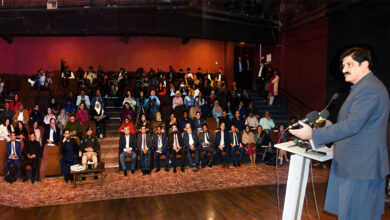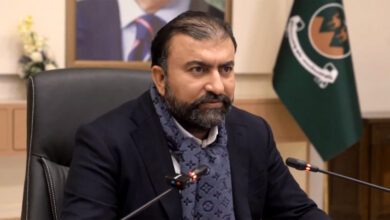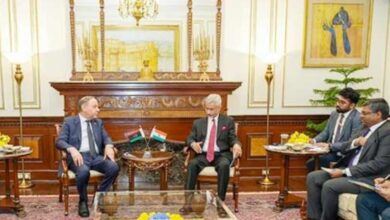Insurgency in Kashmir: what comes next

Atta Rasool Malik
The situation in Indian-administered Kashmir is immensely tense. The beautiful Kashmir Valley is on lockdown, with a complete curfew since August 5. Indian armed forces have started conducting night raids, searching houses and picking up boys (potential stone throwers) since Jammu and Kashmir’s autonomy was stripped two weeks ago. As The Washington Post put it, 8 million people have been cut off from the world and from one another.
A respected Indian social activist Shehla Rashid tweeted that in South’ Kashmir’s Shopian district, four young men were called into Army camp and interrogated- a byword tortured. A loudspeaker Microphone was kept close to them so that the entire area could hear them scream and be terrorized.
The backers of the Bharatiya Janata Party are rejoicing over the abrogation of Article 370 and justifying it by claims that the abolition of J&K’s special status will bring in massive financial investment from the rest of India. They opine that lack of development is the reason for the continued unrest in the Kashmir Valley. This claim is nonsense. The state of Jammu and Kashmir is economically more developed than many northern and eastern Indian states, including Narendra Modi’s very own Gujarat in the human development index.
Elimination of Article 35A and the consequent possibility of purchasing land by non-Kashmiris will not in itself lead to increased investment. For economic development, one needs social peace and political stability. Even the hyper-nationalists in India will not want to invest in Kashmir in the foreseeable future because of the uprising.
At present, in Indian national domestic politics, there is not a single politician in Kashmir who is seen to belong to the mainstream. Local Kashmiri leaders including three former chief ministers have been arrested without any formal charges against them, making a complete mockery of the law. The stage has been set for the escalation of the Kashmir conflict. Modi’s decision has given a new lease on life to the two-nation theory and the right of self-determination in Kashmir. Today, all Kashmiris are united, and it will lead to further militarization and aggressive posturing against India.
Prime Minister Narendra Modi, aided and abetted by like-minded leaders, has redefined Jawaharlal Nehru’s notion of Indian greatness by framing it in terms of Hindu religion rather than Indian nationalism. It is radical repudiation, going back on the promises and legal, political and moral commitments of his predecessors. It is a new threat to all minorities hoping to live in a secular India.
Mr Modi is probably emboldened by Donald Trump who had set precedence for violation of international law by recognizing Israel’s unilateral annexation of Palestinian’s East Jerysalem and Golan Heghts of Syria.
Despite the ongoing tragedy in Kashmir, where Indian armed forces are detaining young boys and molesting girls amid a state- wide blackout, The UAE is set to honour India;s PM Modi on 24 August 2019 with the highest civilian award/honour, “Order of Zayed”.
The Islamic world’s varied responses to multiple crises that target the rights of Muslim communities suggest not only impotence but also a growing willingness to sacrifice causes on the altar of perceived national interest and economic advantage.
Thanks to civilian and military leadership, Pakistan has skillfully avoided Indian traps. Pakistan has neither hurriedly attacked India by exploiting the current insurgency in J&K nor provided any excuse to India for attacking Pakistan. Even the dirty tricks of likely false-flag attacks in Kashmir have been properly exposed. Pakistan is adeptly controlling sentiments of its people through national media and gradually mobilizing elements of its national power.
Currently, pro-India Kashmiri leaders are in jail. Modi has brought every Kashmiri to the side of Pakistan. Pakistan has achieved substantial political capital in Kashmir. The situation in Kashmir is escalating despite the curfew. Pakistan has snatched the initiative from the Indian government. Modi’s mediocre leadership is frustrated and left with nothing but miscalculation, for which Pakistan is ready.
Pakistan is cautiously playing down the anger and emotions of its populace over the Kashmir issue. Kashmir has its soft power, and Pakistan has also achieved substantial diplomatic support of international institutions. It is time Pakistan also engaged the SAARCcountries whose sovereignty rests on Pakistan’s resistance to India. If India overpowers Pakistan, the status of countries like Nepal, Maldives, Bhutan and Sri Lanka, in practical terms, will not be more than that of an Indian state.
India can do nothing but punish Pakistan economically, and Pakistan should be ready to counter it in an innovative manner. China, for the first time, has become a party to the conflict as Indians have laid claims to territory it also claims in the north. If Pakistan is forced to undertake military mobilization, it must be synchronized with Chinese military mobilization on the Line Actual of Control, Doklam, and Sikkim areas. It should not be difficult for Pakistan as China understands its interests in a far bigger timeline than Pakistan.
India has completely closed the doors to dialogue with Pakistan or even with local Kashmiri leadership. The writing on the wall has become clearer.
Two logical outcomes appear to be on the horizon in the Kashmiri context. First, third-party mediation becomes successful, Article 370 restored and Kashmir freedom struggle achieves a new milestone under fresh UN resolutions. Second, brutal Indian oppression in Kashmir, leading to violent uprisings and insurgency. To divert the attention and to pass on the blame to Pakistan, India may attempt to invade Pakistani territory. In the current scenario the first possibility looks bleak and the second one is more likely.





